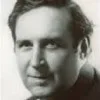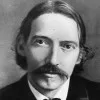Behind the veil the Gods their Secrets keep,
And past that curtain none may hope to peep;
One plot of earth is all we may secure.
Drink, then! for such philosophies are cheap.
Omar Khayyám (1048-1123) Persian poet, mathematician, philosopher, astronomer [عمر خیام]
Rubáiyát [رباعیات], Bod. # 29 [tr. Talbot (1908)]
(Source)
Alternate translations:No one has ever passed behind the veil that masks the secrets of God. No one shall ever pass behind it ; there is no other dwellingplace for us than the bosom of the earth. Woe 's me that this secret, too, should be so short.
[tr. McCarthy (1879), # 19]All mortal ken is bounded by the veil,
To see beyond man's sight is all too frail;
Yea! earth's dark bosom is his only home; --
Alas! 'twere long to tell the doleful tale.
[tr. Whinfield (1883), # 28 or # 47]For none behind the veil of myst'ries way is;
None in the secret of the world's array is:
Save in earth's breast, for us no place of stay is;
Give ear, for no light matter this I say is.
[tr. Payne (1898), # 60]No one can pass behind the curtain that veils the secret,
the mind of no one is cognizant of what is there;
save in the heart of earth we have no haven.
Drink wine, for to such talk there is no end.
[tr. Heron-Allen (1898), # 29]Behind that veil no man has found a way,
Nor knows he anything of life's array,
He has no home but underneath the clay;
Thy truth thy sorrow is, O woeful lay!
[tr. Cadell (1899), # 14]The secret 's hidden from the mortal eye,
Nor living soul can read the mystery;
Save in the heart of earth, we have no rest;
So fill the bowl, 'twill soon be time to die.
[tr. Roe (1906), # 19]For none is there a way behind the veil.
Who tries to pierce its secrets but doth fail?
The only place of rest is earth's dark breast,
Alas, that far from short should be the tale!
[tr. Thompson (1906), # 29]Behind the veil of the secrets there is no way for anybody.
Of this scheme of things the soul of no man has any knowledge.
There is no dwelling-place except in the heart of the dust.
Drink wine, for such tales are not short to tell.
[tr. Christensen (1927), # 61]No one has access to the veil of mystery;
Of this system of life no one has any knowledge.
Except in the heart of the earth there is no resting-place.
Listen, for these tales are not short.
[tr. Rosen (1928), # 42]Behind the secret curtain none can go,
How life is decked and painted none can know;
But then we have to wait in dusty pits --
Alas this endless tale! and weary show!
[tr. Tirtha (1941), # 148]No man has the way within the veil of mysteries; of this arrangement the soul of none is aware: there is no alighting-place, save in the heart of the dark earth -- drink wine, for such fables are not short.
[tr. Bowen (1976), # 46]The world we look at is a painted veil
Which hides God’s presence and the Will Divine,
And since its legends are not briefly told,
Here is their gist -- imbibe it with your wine:
This world’s the only pleasance that we know,
The home where we’ve been cherished since our birth,
And, when we die, our bodies lie at peace
Within a darkened sanctuary of earth.
[tr. Bowen (1976), # 46, "The World"]No one knows the way through the curtain of mysteries,
No one's soul has true knowledge of this natural life,
There is no resting-place but in the heart of earth,
Drink wine because these tales are never finished.
[tr. Avery/Heath-Stubbs (1979), # 158]
Quotations about:
inevitability
Note not all quotations have been tagged, so Search may find additional quotes on this topic.
I do not believe in a fate that falls on men however they act; but I do believe in a fate that falls on them unless they act.
Gilbert Keith Chesterton (1874-1936) English journalist and writer
Essay (1922-04-29), “On Holland,” Illustrated London News
(Source)
Collected in Generally Speaking, ch. 20 (1928)
Any coward can fight a battle when he’s sure of winning; but give me the man who has pluck to fight when he’s sure of losing. That’s my way, sir; and there are many victories worse than a defeat.
George Eliot (1819-1880) English novelist [pseud. of Mary Ann Evans]
Scenes of Clerical Life, “Janet’s Repentance,” ch. 6 (1857)
(Source)
Fate always wins. Most of the gods throw dice but Fate plays chess, and you don’t find out until too late that he’s been using two queens all along.
Chance is necessity hidden behind a veil.
[Zufall ist die in Schleier gehüllte Nothwendigkeit.]
Marie von Ebner-Eschenbach (1830-1916) Austrian writer
Aphorisms [Aphorismen], No. 10 (1880) [tr. Scrase/Mieder (1994)]
(Source)
Change is certain. Progress is not.
E. H. Carr (1892-1982) British historian, journalist, international relations theorist [Edward Hallett "Ted" Carr]
(Attributed)
This is widely cited to his collection, From Napoleon to Stalin and Other Essays (1980), but I cannot find it there.
The majority always has its way in the end. So does the undertaker. But neither gains in pleasantness by the fact.
H. L. Mencken (1880-1956) American writer and journalist [Henry Lewis Mencken]
A Little Book in C Major, ch. 3, § 11 (1916)
(Source)
For Freedom’s battle once begun,
Bequeathed by bleeding Sire to Son,
Though baffled oft is ever won.
A resolution to avoid an evil is seldom framed till the evil is so far advanced as to make avoidance impossible.
We may all resort, at the summer solstice, to the warmest spots of Italy, to Ardea, Pestum, and Baiae, fervid with the heat of the constellation Leo, since Curiatus condemned the air of Tivoli, when he was on the point of being transported from its extolled waters to those of the Styx. Fate is not to be diverted by localities: when death comes, the pestilent Sardinia is to be found in the middle of the healthy Tivoli.
[Ardea solstitio Castranaque rura petantur
Quique Cleonaeo sidere fervet ager,
Cum Tiburtinas damnet Curiatius auras
Inter laudatas ad Styga missus aquas.
5Nullo fata loco possis excludere: cum mors
Venerit, in medio Tibure Sardinia est.]Martial (AD c.39-c.103) Spanish Roman poet, satirist, epigrammatist [Marcus Valerius Martialis]
Epigrams [Epigrammata], Book 4, epigram 60 (4.60) (AD 89) [tr. Amos (1858)]
(Source)
Sardinia was considered a proverbially unhealthy locale, while Tivoli (Tibur) was considered a healthy resort to travel to during the summer.
(Source (Latin)). Alternate translations:When Leo rages with the summer's sun,
From pestilential climates never run;
Since, in the wholesom'st and the purest air,
The destinies Croatius did not spare.
When thy time's come, death from no place is bound,
Sardinia in the midst of Tibur's found.
[tr. Killigrew (1695)]To Ardea, Pestum, roam, and e'er so far;
Or glow beneath the Cleonean star:
While Curiatius damns Tiburtian gales,
As down the healthfull streams to Styx he fails.
The Fates no place debars: if Death be there,
Alike is Tibur's and Sardinia's air.
[tr. Elphinston (1782), 9.10]Let us in the summer solstice retire to Ardea and the country about Paestum, and to the tract which burns under the Cleonaean constellation; since Curiatius has condemned the air of Tivoli, carried off as he was to the Styx notwithstanding its much-lauded waters. From no place can you shut out fate: when death comes, Sardinia is in the midst of Tivoli itself.
[tr. Bohn's Classical (1859)]Go where you will, you cannot shut
The door on Fate; when Death draws nigh,
Then far Sardinia is as near
As Tibur.
[ed. Harbottle (1897)]Seek ye Ardea in summer's heat, and the field sof castum, and teh meads scorched by Cleonae's star, seeing that Curiatius condemns Tibur's air; from amid waters so belauded was he sent to Styx. In no spot canst thou shut out fate; when death comes even in Tibur's midst is a Sardinia.
[tr. Ker (1919)]Now must we say, if thou be wise
In summer’s heat to Ardea turn,
Or seek the plain where Castrum lies
And the hot stars of Leo burn.
He that is laid in yonder grave
Saith, "Tarry not but get thee gone."
Here sought he Arno’s healing wave,
But found the stream of Acheron?
[tr. Pott & Wright (1921)]To Ardea and Castrum let us go
In the dog-days when all the heaven's aglow.
Tibur's a death trap; Curiatius died,
Sent mid its breezes to the Stygian tide.
Death ranges at his will; when so inclined
In Tibur's bosom he'll Sardinia find.
[tr. Francis & Tatum (1924), ep. 195]Now in the blazing heat we might as well escape
to Castrum, or Ardea, or any sunburnt landscape,
since Curiatius has laid a curse
on the air of Tivoli by dying there,
where the waters are also salubrious.
No place can fend off death. It's no worse
to expire in sickly Sardinia than in a spa.
[tr. Bovie (1970)]At the solstice let us make for Ardea and the Castran countryside and whatever fields are scorched by Cleonae's constellation, since Curiatius damns the breezes of Tibur, dispatched to Styx amid her lauded waters. In no place can you shut out fate; when death comes, in the midst of Tibur is Sardinia.
[tr. Shackleton Bailey (1993)]
I tell you this, and I tell you plain:
What you have done, you will do again;
You will bite your tongue, careful or not,
Upon the already-bitten spot.Mignon McLaughlin (1913-1983) American journalist and author
The Neurotic’s Notebook, ch. 5 (1963)
(Source)
“Dystopia” isn’t when things go wrong. Assuming nothing will go wrong doesn’t make you an optimist, it makes you an asshole. A dangerous asshole. Assuming nothing will go wrong is why they didn’t put enough lifeboats on the Titanic. Dystopia isn’t where things go wrong. Dystopia is when things go wrong, and nothing can be done about it.
Somewhere we must come to see that human progress never rolls in on the wheels of inevitability. It comes through the tireless efforts and the persistent work of dedicated individuals who are willing to be coworkers with God. And without this hard work, time itself becomes an ally of the primitive forces of social stagnation. So we must have time and realize that the time is always right to do right.
Martin Luther King, Jr. (1929-1968) American clergyman, civil rights leader, social activist, preacher
“Remaining Awake Through a Great Revolution,” National Cathedral, Washington, DC (31 Mar 1968)
(Source)
No longer dream that human prayer
The will of Fate can overbear.[Desine fata deum flecti sperare precando.]
Virgil (70-19 BC) Roman poet [b. Publius Vergilius Maro; also Vergil]
The Aeneid [Ænē̆is], Book 6, l. 176ff (6.176) [The Sybil] (29-19 BC) [tr. Conington (1866)]
(Source)
Speaking to dead Palinurus.
(Source (Latin)). Alternate translations:Desist to hope that fates will heare thy prayer
[tr. Ogilby (1649)]Fate, and the dooming gods, are deaf to tears.
[tr. Dryden (1697)]Cease to hope that the decrees of the gods are to be altered by prayers.
[tr. Davidson/Buckley (1854)]Cease to hope
By prayers to bend the destinies divine.
[tr. Cranch (1872)]Cease to hope prayers may bend the decrees of heaven.
[tr. Mackail (1885)]Hope not the Fates of very God to change by any prayer.
[tr. Morris (1900)]Hope not by prayer to bend the Fates' decree.
[tr. Taylor (1907), st. 51, l. 454]Hope not by prayer to change the laws of Heaven!
[tr. Williams (1910)]Cease to dream that heaven's decrees may be turned aside by prayer.
[tr. Fairclough (1916)]Give up the hope
That fate is changed by praying.
[tr. Humphries (1951)]Give up this hope that the course of fate can be swerved by prayer.
[tr. Day-Lewis (1952)]Leave any hope that prayer can turn aside
the gods' decrees.
[tr. Mandelbaum (1971), ll. 495-96]Abandon hope by prayer to make the gods
Change their decrees.
[tr. Fitzgerald (1981), ll. 506-7]You must cease to hope that the Fates of the gods can be altered by prayers.
[tr. West (1990)]Cease to hope that divine fate can be tempered by prayer.
[tr. Kline (2002)]Stop hoping that the gods' decrees
Can be bent with prayer.
[tr. Lombardo (2005)]Hope no more
the gods’ decrees can be brushed aside by prayer,
[tr. Fagles (2006), l. 428-29]As if the gods' fates could be bent by prayer.
[tr. Bartsch (2021)]
Justice they call Time’s Daughter; to the world,
Because at length the wicked she displays.[τήν τοι Δίκην λέγουσι παῖδ᾽εἶναι Χρόνου,
δείκνυσι δ᾽ἡµῶν ὅστις ἐστὶ µὴ κακός]Euripides (485?-406? BC) Greek tragic dramatist
Antiope [Αντιοπη], frag. 222 (Kannicht) (c. 410 BC) [tr. Wodhall (1809)]
(Source)
(Source (Greek)). TGF frag. 223. Barnes frag. 35, Musgrave frag. 3. Alternate translation:They say that Dike is the child of Cronos
and brings to light whichever of us is not wicked.
[Will (2015)]
Who, pray, are benefiting by all this waste and confusion? The dew, a mere small percentage of the population of the world. All the remainder submit, because they think “it always has been so and it must always be so.” The work of those who have a conception of a true society of the future, must devote all their efforts towards disabusing the people’s minds of the ancient false hoods. It can be done. Many other hoary lies have passed away, so will this one, too.
Lucy Parsons (1851-1942) American labor organizer, anarchist, orator [a.k.a. Lucy Gonzalez]
“Property Rights vs. Human Rights,” The Liberator (22 Nov 1905)
(Source)
Thus, because we are rapidly advancing along this non-sustainable course, the world’s environmental problems will get resolved, in one way or another, within the lifetimes of the children and young adults alive today The only question is whether they will become resolved in pleasant ways of our own choice, or in unpleasant ways not of our choice, such as warfare, genocide, starvation, disease epidemics, and collapses of societies. While all of those grim phenomena have been endemic to humanity throughout our history, their frequency increases with environmental degradation, population pressure, and the resulting poverty and political instability.
Jared Diamond (b. 1937) American geographer, historian, ornithologist, author
Collapse: How Societies Choose to Fail or Succeed, Part 4, ch. 16 (2005)
(Source)
The great armies, accumulated to provide security and preserve the peace, carried the nations to war by their own weight.
A. J. P. Taylor (1906-1990) British historian, journalist, broadcaster [Alan John Percivale Taylor]
The First World War: A Illustrated History, ch. 1 (1963)
(Source)
“Inevitability” is a magic word with which to mesmerize the unwary. Only death is inevitable. Short of that, nothing is inevitable until it happens, and everything is inevitable once it has happened. The historian deals with past events and therefore to him all history is inevitable. But these past events were once in the future, and then they were not inevitable.
No war is inevitable until it breaks out.
A. J. P. Taylor (1906-1990) British historian, journalist, broadcaster [Alan John Percivale Taylor]
The Struggle for Mastery in Europe 1848-1918, ch. 22 (1954)
(Source)
A censor is a man who has read about Joshua and forgotten about Canute. The censor believes that he can hold back the mighty traffic of life with a tin whistle and a raised right hand. For, after all, it is life with which he quarrels.
We are all at a wonderful ball where the champagne sparkles in every glass and soft laughter falls upon the summer air. We know, by the rules, that at some moment the Black Horsemen will come shattering through the great terrace doors, wreaking vengeance and scattering the survivors. Those who leave early are saved, but the ball is so splendid no one wants to leave while there is still time, so that everyone keeps asking, “What time is it? What time is it?” but none of the clocks have any hands.
George Goodman (1930-2014) American author, economics broadcast commentator [pseud. Adam Smith]
Supermoney, Part 3, ch. 2 (1972)
(Source)
An explanation he gave to a "mass-circulation magazine" about the stock bubble in 1968. He later incorporated a variation of the story in a republication of his 1968 The Money Game:We are all at a wonderful party, and by the rules of the game we know that at some point in time the Black Horsemen will burst through the great terrace doors to cut down the revelers; those who leave early may be saved, but the music and wines are so seductive that we do not want to leave, but we do ask, "What time is it? What time is it?" Only none of the clocks have any hands.
Truth is mighty and will prevail. There is nothing wrong with this, except that it ain’t so.
Mark Twain (1835-1910) American writer [pseud. of Samuel Clemens]
Note (1893-07-04), Mark Twain’s Notebook, ch. 21 “In Vienna” (1935) [ed. Albert Bigelow Paine]
(Source)
While summering in Kaltenleutgeben, Austria.
The core phrase, from the Latin "Magna est veritas et prævalebit," was first formulated in English by Thomas Brooks. An earlier variant can be found in Cicero, Pro Caelio Rufo (56 BC): "How great is the power of truth" [O magna vis veritas].
Nobody knows what is going to happen because so much depends on an enormous number of variables, on simple hazard. On the other hand if you look at history retrospectively, then, even though it was contingent, you can tell a story that makes sense. […]
Jewish history, for example, in fact had its ups and downs, its, enmities and its friendships, as every history of all people has. The notion that there is one unilinear history is of course false. But if you look at it after the experience of Auschwitz it looks as though all of history — or at least history since the Middle Ages — had no other aim than Auschwitz. […]
This, is the real problem of every philosophy of history how: is it possible that in retrospect it always looks as though it couldn’t have happened otherwise?Hannah Arendt (1906-1975) German-American philosopher, political theorist
Interview (1973-10) with Roger Errera, Office de Radiodiffusion-Télévision Française (ORTF)
(Source)
Parts of this interview were turned into an episode of the French TV series "Un certain regard," directed by Jean-Claude Lubtchansky, first broadcast 1974-07-06. This portion of the interview comes at NN:NN in.
This portion of the interview was also published in The New York Review of Books (1978-10-26).
And fate? No one alive has ever escaped it,
neither brave man nor coward, I tell you —
it’s born with us the day that we are born.[Μοῖραν δ’ οὔ τινά φημι πεφυγμένον ἔμμεναι ἀνδρῶν,
οὐ κακὸν οὐδὲ μὲν ἐσθλόν, ἐπὴν τὰ πρῶτα γένηται.]Homer (fl. 7th-8th C. BC) Greek author
The Iliad [Ἰλιάς], Book 6, l. 488ff (6.488-489) (c. 750 BC) [tr. Fagles (1990), ll. 582-84]
Hector bidding his wife farewell. Alt. trans.:And fate, whose wings can fly?
Noble, ignoble, fate controls. Once born, the best must die.
[tr. Chapman (1611), ll. 528-29]Fixed is the term to all the race of earth,
And such the hard condition of our birth.
No force can then resist, no flight can save;
All sink alike, the fearful and the brave.
[tr. Pope (1715-20)]Nor lives he who can overpass the date
By heaven assign’d him, be he base or brave
[tr. Cowper (1791), ll. 595-96]But I think there is no one of men who has escaped fate, neither the coward nor the brave man, after he has once been born.
[tr. Buckley (1860)]If a man's hour is come, be he brave or be he coward, there is no escape for him when he has once been born.
[tr. Butler (1898)]Only his doom, methinks, no man hath ever escaped, be he coward or valiant, when once he hath been born.
[tr. Murray (1924)]No mortal, either, can escape his fate, coward or brave man, once he comes to be.
[tr. Fitzgerald (1974)]
Lead the ideas of your time and they will accompany and support you; fall behind them and they drag you along with them; oppose them and they will overwhelm you.
Napoleon Bonaparte (1769-1821) French emperor, military leader
(Attributed)
(Source)
Quoted, unsourced, in Jules Bertaut, Napoleon: In His Own Words [Virilités, maximes et pensées de Napoléon Bonaparte], ch. 4 (1916) [tr. Law and Rhodes].
Against all appearances the nature of things works for truth and right forever.
Ralph Waldo Emerson (1803-1882) American essayist, lecturer, poet
“Worship,” The Conduct of Life, ch. 6 (1860)
(Source)
It is the mark of a good action that it appears inevitable in retrospect.
Robert Louis Stevenson (1850-1894) Scottish essayist, novelist, poet
“Reflections and Remarks on Human Life,” #6 (1878)
(Source)
The Moving Finger writes; and, having writ,
Moves on: nor all your Piety nor Wit
Shall lure it back to cancel half a Line,
Nor all your Tears wash out a Word of it.
Omar Khayyám (1048-1123) Persian poet, mathematician, philosopher, astronomer [عمر خیام]
Rubáiyát [رباعیات], Bod. # 31, etc. [tr. FitzGerald, 2nd Ed (1868), # 76]
(Source)
All Fitzgerald editions after the 2nd used the same text but numbered as # 71. The 1st Ed. was very similar, only using "thy" instead of "your," and numbered as # 51.
Fitzgerald seems to have merged at least three different fatalistic quatrains into this famous one of his: Bodleian #31, 54, and 95. Fitzgerald's use of a finger as the writing implement, rather the pen and pencils of other translators, seems taken from Daniel 5 in the Bible.
Alternate translations:
Bodleian # 31All things that be were long since marked upon the tablet of creation. Heaven's pencil has naught to do with good or evil. God set on fate its necessary seal; and all our efforts are but a vain striving.
[tr. McCarthy (1879), # 86] (1888)To me there is much comfort in the thought
That all our agonies can alter nought,
Our lives are written to their latest word,
We but repeat a lesson He hath taught.
[tr. Le Gallienne (1897), # 93]Whatever betides on the Tablet of Destiny writ is;
Of good and of evil thenceforward the Pen Divine quit is:
In Fate foreordained whatsoever behoveth It 'stablished:
Our stress and our strife and our thought-taking vain every whit is.
[tr. Payne (1898), # 191]From the beginning was written what shall be;
Unhaltingly the Pen writes, and is heedless of good and bad;
On the First Day He appointed everything that must be --
Our grief and our efforts are vain.
[tr. Heron-Allen (1898), # 31]Long, long ago, man's fate was graven clear,
The pen left nought unwrit of joy or woe;
Since from eternity God ruled it so
Then senseless are our grief and striving here.
[tr. Cadell (1899), # 11]Ere yet the dawn of Azal shed its light
O'er dreary chaos and the realms of night,
The Pen, unmoved by good and evil, wrote;
Nor grief can change, nor endless toil rewrite.
[tr. Roe (1906), # 21]Fate's marks upon the tablet still remain
As first, the Pen unmoved by bliss or bane;
In fate whate'er must be it did ordain,
To grieve or to resist is all in vain.
[tr. Thompson (1906), # 69]For He, to whom all future things are known,
E'en as He made thee wrote thy record down;
And what His pen hath written, good or ill,
No strife may alter, and no grief atone.
[tr. Talbot (1908), # 31]From of old the scheme of all that must be has existed.
The pen of destiny has written good and evil without ceasing.
He has appointed in predestination all that must come.
We distress and bestir ourselves, but all to no avail.
[tr. Christensen (1927), # 91]Before now there have been signs of what is to come,
The pen never rests from good or evil.
Destiny has given you all that is to be,
Our worries and our endeavours are in vain.
[tr. Rosen (1928), # 53]His tablet bears the future but concealed,
His pen is calm if good or bad we yield.
The powers gave us proper share at first,
With grief or strife no less nor more we wield.
[tr. Tirtha (1941), # 6.16]What we shall be is written, and we are so.
Heedless of God or Evil, pen, write on!
By the first day all futures were decided;
Which gives our griefs and pains irrelevancy.
[tr. Graves & Ali-Shah (1967), # 75]The characters of all creatures are on the Tablet,
The Pen always worn with writing "Good," "Bad":
Our grieving and striving are in vain,
Before time began all that was necessary was given.
[tr. Avery/Heath-Stubbs (1979), # 26]Signs of destiny have always been
Those hands inscribed both good and mean
What was written, came from the unseen
Though we tried without and worried within.
[tr. Shahriari (1998), # 24, literal]One is great
Who faces fate
Before it’s late,
Appreciate
The destined state
No matter how much we debate
Oppose, engage, or calculate
Even try to accelerate
Fate only moves at its own rate.
Futile is worry, anger and hate
Joy is the only worthy mate.
[tr. Shahriari (1998), # 24, figurative]
Bodleian # 54Yes, since whate'er the Pen of Fate has traced
For Tears of Man will never be erased,
Support thy Ills, do not bemoan thy Lot,
Let all of Fate's Decrees be bravely faced.
[tr. Garner (1887), 4.4]Whatever laws the pen of Fate has traced
For tears of man will never be erased;
Support thy ills, do not bemoan thy lot,
Let all of Fate's decrees be boldly faced.
[tr. Garner (1898), # 83]What the Pen has written never changes,
and grieving only results in deep affliction;
even though, all thy life, thou sufferest anguish,
not one drop becomes increased beyond what is.
[tr. Heron-Allen (1898), # 54]Nought can be changed of what was first decreed,
Grieve as thou wilt, no heart but thine will bleed;
If thy life long, thine eyes shed tears of blood,
'Twill not increase one drop woe's raging flood.
[tr. Cadell (1899), # 89]For what is written, be it long or brief,
Remains the same, nor tears can give relief;
No drop of destiny is less nor more,
Though naught you know but lifelong pain and grief.
[tr. Roe (1906), # 24]To change the written scroll there is no power.
And grieving only makes your heart bleed sore.
Though anguish all your life consume your blood.
You cannot add to it one drop the more.
[tr. Thompson (1906), # 73]Whate'er the Pen hath written stands for aye:
Afflictions's sword the grieving heart will slay;
Though all thy life with anguish thou art wrung,
The forward march of Fate thou canst not stay.
[tr. Talbot (1908), # 54]The Fate will not correct what once she writes,
And more than what is doled no grain alights;
Beware of bleeding heart with sordid cares,
For cares will cast thy heart in wretched plights.
tr. Tirtha (1941), # 6.12]
Bodleian # 95Oh my heart, since life's reality is illusion,
Why vex thyself with its sorrows and cares?
Commit thee to fate, contented with the hour,
For the pen, once passed, returns not back for thee!
[tr. Cowell (1858), # 15]Since life has, love! no true reality,
Why let its coil of cares a trouble be?
Yield thee to Fate, whatever of pain it bring:
The Pen will never unwrite its writ for thee!
[tr. M. K. (1888)]O heart! this world is but a fleeting show,
Why should its empty griefs distress thee so?
Bow down and bear thy fate, the eternal pen
Will not unwrite its roll for thee, I trow!
[tr. Whinfield (1883), # 257]O heart, my heart, since the very basis of all this world's gear is but a fable, why do you adventure in such an infinite abyss of sorrows? Trust thyself to fate, uphold the evil, for what the pencil has traced will not be effaced for you.
[tr. McCarthy (1879), # 159] (1888)Oh, heart! since in this world truth itself is hyperbole,
why art thou so disquieted with this trouble and abasement?
resign thy body to destiny, and adapt thyself to the times,
for, what the Pen has written, it will not rewrite for thy sake.
[tr. Heron-Allen (1898), # 95]O heart! 'tis true that all this world is vain,
Wherefore then eat the fruit of sorrow's tree?
To fate thy body yield, endure the pain;
The once split pen will never mend for thee.
[tr. Cadell (1899), # 100]O, Heart! Since earth's truth is illusion vain,
Why so distressed in lasting grief and pain?
Bear trouble ! Bow to Fate ! Once gone the Pen
For thee will never trace the scroll again!
[tr. Thompson (1906), # 300]O heart! truth absolute thou canst not see,
Then why abase theyself in misery?
Bow down to Fate, and wrestle not with Time!
The pen will not rewrite one word for thee.
[tr. Talbot (1908), # 95]Oh heart, as in truth the world is but a delusion,
Why grieve so much at this dearth of kindness?
Give thyself up to fate and befriend thy sorrow,
For this pen will not retrace its writing for thee.
[tr. Rosen (1928), # 170]O mind! the world is but a mocking sight,
You fancy some delights, and fret in fright;
Resign yourself to Him, and pine for Him,
You cannot alter what is black on white.
tr. Tirtha (1941), # 6.11]Oh heart, since the world's reality is illusion,
How long will you complain about this torment?
Resign your body to fate and put up with the pain,
Because what the Pen has written for you it will not unwrite.
[tr. Avery/Heath-Stubbs (1979), # 32]
Destiny is for people who are too lazy to create alternate timelines.
‘Tis impossible to be sure of any thing but Death and Taxes.
Christopher Bullock (1690?-1724) English actor and dramatist
The Cobler of Preston [Toby Guzzle] (1716)
(Source)
Earliest spotting of the phrase; if not popular before, it was subsequently picked up by a number of sources prior to the more famous formulation by Benjamin Franklin in 1789. More discussion: Nothing Is Certain, Except Death and Taxes – Quote Investigator.
Your spirit, youth, and valour give me heart, not to mention necessity, which makes even the timid brave.
[Animus, aetas, virtus vostra me hortantur, praeterea necessitudo, que etiam timidos fortis facit.]
Sallust (c. 86-35 BC) Roman historian and politician [Gaius Sallustius Crispus]
Bellum Catilinae [The War of Catiline; The Conspiracy of Catiline], ch. 58, sent. 19 [tr. Rolfe (1931)]
(Source)
Catiline, addressing his troops. Usually shortened to "Necessity makes even the timid brave" [Necessitas etiam timidos fortes facit.]. Original Latin.
Alt. trans.:
- "From your youthful vigor and undaunted courage I expect every advantage. Even the difficulties of our situation inspire me with confidence; for difficulties have often produced prodigies of valor." [tr. Murphy (1807)]
- "Your spirit, your age, your virtue encourage me; and our necessity, too, which even inspires cowards with bravery." [tr. Rose (1831), ch. 61]
- "Your spirit, your age, your valour encourage me, the necessity moreover which makes even the timid brave." [Source (1841)]
- "Your spirit, your age, your valor, give me confidence; to say nothing of necessity, which makes even cowards brave." [tr. Watson (1867)]
- "Your resolution, your age, and your courage, and above all the inevitable nature of the encounter, which often makes even the timid brave, exhort me to this." [tr. Pollard (1882)]
Our new Constitution is now established, and has an appearance that promises permanency, but in this world nothing can be said to be certain, except death and taxes.
There is no good in arguing with the inevitable. The only argument available with an east wind is to put on your overcoat.
James Russell Lowell (1819-1891) American diplomat, essayist, poet
Speech (1884-10-06), “Democracy,” Inaugural Address, Presidency of the Birmingham and Midland Institute, England
(Source)
The present, as historians well know, re-creates the past. This is partly because, once we know how things have come out, we tend to rewrite the past in terms of historical inevitability.
NORTON I: I must confess, I have always wondered what lay beyond life, my dear.
DEATH: Yeah, everybody wonders. And sooner or later everybody gets to find out.
Neil Gaiman (b. 1960) British author, screenwriter, fabulist
Sandman, Book 6. Fables and Reflections, # 31 “Three Septembers and a January” (1991-10)
(Source)
All Bette’s stories have happy endings. That’s because she knows where to stop. She’s realized the real problem with stories — if you keep them going long enough, they always end in death.
Neil Gaiman (b. 1960) British author, screenwriter, fabulist
Sandman, Book 1. Preludes and Nocturnes, # 6 “24 Hours” (1989-06)
(Source)
But dreadful is the mysterious power of fate — there is no deliverance from it by wealth or by war, by towered city, or dark, sea-beaten ships.
[ἀλλ᾽ ἁ μοιριδία τις δύνασις δεινά:
οὔτ᾽ ἄν νιν ὄλβος οὔτ᾽ Ἄρης, οὐ πύργος, οὐχ ἁλίκτυποι
κελαιναὶ νᾶες ἐκφύγοιεν.]Sophocles (496-406 BC) Greek tragic playwright
Antigone, l. 951, Strophe 1 (Stasimon 4) [Chorus] (441 BC) [tr. Jebb (1891)]
(Source)
Original Greek. Alt. trans.:Strange are the ways of Fate, her power
Nor wealth, nor arms withstand, nor tower;
Nor brass-prowed ships, that breast the sea
From Fate can flee.
[tr. Storr (1859)]No power in wealth or war
Or tough sea-blackened ships
Can prevail against untiring Destiny!
[tr. Fitts/Fitzgerald (1939), ll. 744-46]There is no tower.
So high, no armory so great,
No ship so swift, as is the power
Of man's inexorable fate.
[tr. Watling (1947)]Mysterious, overmastering, is the power of Fate,
From this, nor wealth nor force of arms
Nor strong encircling city-walls
Nor storm-tossed ship can give deliverance.
[tr. Kitto (1962)]Fate has a terrible power
That nothing escapes, not wealth,
Not warfare, not a fortress tower,
Not even black ships beating against the sea.
[tr. Woodruff (2001)]Fate's power, though, is mighty, and neither Lords of lands nor Ares nor castles nor flighty ships well-beaten by the waves can escape her.
[tr. Theodoridis (2004)]But the power of fate is full of mystery.
There’s no evading it, no, not with wealth,
or war, or walls, or black sea-beaten ships.
[tr. Johnston (2005)]But the power of fate (whatever it may be) is terrible and wonderful.
Neither wealth nor Ares,
no tower, no dark ships
beaten by the sea can escape it.
[tr. Tyrell/Bennett]
When playing Russian roulette the fact that the first shot got off safely is little comfort for the next.
Richard Feynman (1918-1988) American physicist
Rogers Commission Report into the Challenger Crash, Appendix F “Personal Observations on Reliability of Shuttle” (Jun 1986)
Full report
The first rule is, to keep an untroubled spirit; for all things must bow to Nature’s law, and soon enough you must vanish into nothingness, like Hadrian and Augustus. The second is to look things in the face and know them for what they are, remembering that it is your duty to be a good man. Do without flinching what man’s nature demands; say what seems to you most just — though with courtesy, modesty, and sincerity.
[Τὸ πρῶτον μὴ ταράσσου: πάντα γὰρ κατὰ τὴν τοῦ ὅλου φύσιν καὶ ὀλίγου χρόνου οὐδεὶς οὐδαμοῦ ἔσῃ, ὥσπερ οὐδὲ Ἁδριανὸς οὐδὲ Αὔγουστος. ἔπειτα ἀτενίσας εἰς τὸ πρᾶγμα ἴδε αὐτὸ καὶ συμμνημονεύσας ὅτι ἀγαθόν σε ἄνθρωπον εἶναι δεῖ καὶ τί τοῦ ἀνθρώπου ἡ φύσις ἀπαιτεῖ, πρᾶξον τοῦτο ἀμεταστρεπτὶ καὶ εἰπέ, ὡς δικαιότατον φαίνεταί σοι: μόνον εὐμενῶς καὶ αἰδημόνως καὶ ἀνυποκρίτως.]
Marcus Aurelius (AD 121-180) Roman emperor (161-180), Stoic philosopher
Meditations, Book 8, #5 [tr. Staniforth (1964)]
(Source)
This translation was adapted (and significantly shortened) by Norman Vincent Peale in You Can If You Think You Can (1974): "The first rule is to keep an untroubled spirit. The second is to look things in the face and know them for what they are."
Peale's paraphrase significantly changes the meaning (by removing the fatalism and the sense of duty in the face of the actions of great men from the past, and turning it into a general call for calm and clarity). Nonetheless, Peale's version of this translation shows up all over the place, and generally without reference to him.
Original Greek. Alternate translations:First; let it not trouble thee. For all things both good and evil come to pass according to the nature and general condition of the universe, and within a very little while, all things will be at an end; no man will be remembered: as now of Africanus (for example) and Augustus it is already come to pass. Then secondly; fix thy mind upon the thing itself; look into it, and remembering thyself, that thou art bound nevertheless to be a good man, and what it is that thy nature requireth of thee as thou art a man, be not diverted from what thou art about, and speak that which seemeth unto thee most just: only speak it kindly, modestly, and without hypocrisy.
[tr. Casaubon (1634), #4]In the first place, keep yourself easy, for all things are governed by the laws and order of Providence: besides, you'll quickly go the way of all flesh, as Augustus, Adrian, and the rest of the emperors have done before you. Farther, examine the matter from top to bottom, and remember, that the top of your business is to be a good man: therefore whatever the dignity of human nature requires of you, set about it presently, without ifs, or ands: and speak always according to your conscience, but let it be done in the terms of good nature and civility.
[tr. Collier (1701)]This is the chief thing: Be not perturbed, for all things are according to the nature of the universal; and in a little time thou wilt be nobody and nowhere, like Hadrianus and Augustus. In the next place, having fixed thy eyes steadily on thy business, look at it, and at the same time remembering that it is thy duty to be a good man, and what man's nature demands, do that without turning aside; and speak as it seems to thee most just, only let it be with a good disposition and with modesty and without hypocrisy.
[tr. Long (1862)]In the first place, keep yourself easy, for all things are governed by the universal nature. Besides, you'll quickly go the way of all flesh, as Augustus and Hadrian have done before you. Farther, examine the matter from top to bottom, and remember that your business is to be a good man. Therefore, whatever the dignity of human nature requires of you, set about it at once, without "ifs" or "ands"; and speak always according to your conscience, but let it be done in the terms of good nature and modesty and sincerity.
[tr. Zimmern (1887)]In the first place, be not troubled; for all things are according to Universal Nature, and in a little while you will be no one and nowhere, even as Hadrian and Augustus are no more. Next, looking earnestly at the question, perceive its essence, and reminding yourself that your duty is to be a good man, and what it is that man's nature demands, do that without swerving, and speak the thing that appears to you to be most just, provided only that it is with kindness and modesty, and without hypocrisy
. [tr. Farquharson (1944)]The first step. Don't be anxious. Nature controls it all. And before long you'll be no one, nowhere -- like Hadrian, like Augustus. The second step: Concentrate on what you have to do. Fix your eyes on it. Remind yourself that your task is to be a good human being; remind yourself what nature demands of people. Then do it, without hesitation, and speak the truth as you see it. But with kindness. With humility. Without hypocrisy.
[tr. Hays (2003)]
HENRY: Are these things then necessities?
Then let us meet them like necessities.William Shakespeare (1564-1616) English dramatist and poet
Henry IV, Part 2, Act 3, sc. 1, l. 94ff (3.1.94-95) (c. 1598)
(Source)
The greatest follies, like the stoutest ropes, are often composed of a multitude of strands. Take the cable thread by thread, take separately each petty determining motive, and you can snap them one by one and say, “There’s no more to it than that!” Braid them and twist them together, and what you have is momentous.
[Les fortes sottises sont souvent faites, comme les grosses cordes, d’une multitude de brins. Prenez le câble fil à fil, prenez séparément tous les petits motifs déterminants, vous les cassez l’un après l’autre, et vous dites: Ce n’est que cela! Tressez-les et tordez-les ensemble, c’est une énormité.]Victor Hugo (1802-1885) French writer
Les Misérables, Part 2 “Cosette,” Book 5 “Dark Hunt, Mute Mutts,” ch. 10 (2.5.10) (1862) [tr. Donougher (2013)]
(Source)
(Source (French)). Alternate translations:Great blunders are often made, like large ropes, of a multitude of fibres. Take the cable thread by thread, take separately all the little determining motives, you break them one after another, and you say: that is all. Wind them and twist them together, they become an enormity.
[tr. Wilbour (1862)]Great follies are often made, like stout ropes, of a multitude of fibers. Take the cable, thread by thread, catch hold of the small determining motives separately, and you break them one after the other, and say to yourself, “It is only that”; but twist them together and you have an enormity.
[tr. Wraxall (1862)]The greatest follies are often composed, like the largest ropes, of a multitude of strands. Take the cable thread by thread, take all the petty determining motives separately, and you can break them one after the other, and you say, "That is all there is of it!" Braid them, twist them together; the result is enormous.
[tr. Hapgood (1887)]The greatest blunders, like the thickest ropes, are often compounded of a multitude of strands. Take the rope apart, separate it into the small threads that compose it, and you can break them one by one. You think, 'That is all there was!' But twist them all together, and you have something tremendous.
[tr. Denny (1976)]Great blunders are often made, like large ropes, of a multitude of fibers. Take the cable thread by thread, take all the little determining motives separately, you break them one after another, and you say: That is all it is. Braid them and twist them together, they become an enormity.
[tr. Wilbour/Fahnestock/MacAfee (1987)]












































